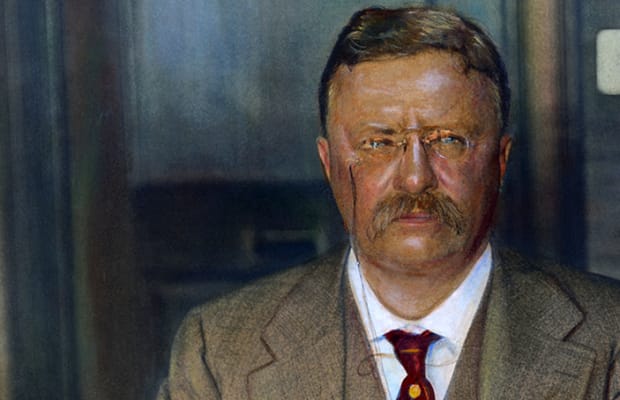
I found this quote in an old Mahablog post from 2007. It’s fitting for right now.
The President is merely the most important among a large number of public servants. He should be supported or opposed exactly to the degree which is warranted by his good conduct or bad conduct, his efficiency or inefficiency in rendering loyal, able, and disinterested service to the Nation as a whole.
Therefore it is absolutely necessary that there should be full liberty to tell the truth about his acts, and this means that it is exactly necessary to blame him when he does wrong as to praise him when he does right. Any other attitude in an American citizen is both base and servile.
To announce that there must be no criticism of the President, or that we are to stand by the President, right or wrong, is not only unpatriotic and servile, but is morally treasonable to the American public. Nothing but the truth should be spoken about him or any one else. But it is even more important to tell the truth, pleasant or unpleasant, about him than about any one else. T. Roosevelt, May 1918
Teddy wrote this in an editorial for the Kansas City Star in 1918. He was opposing the Sedition Act of 1918, which criminalized the publication of “disloyal” statements about the U.S. government.

TR: Speak softly, but carry a big stick!
DT: Whine loudly, while having LARGE HANDS.
This reminds me that there was talk among Republicans of running TR for president again in 1920. He would only have been 62 years old. Unfortunately he died in early 1919.
Although he is right that the president must always be open to criticism and that sedition legislation is un-American, one notices that his criterion for criticizing the president floats in a never-neverland in which party politics does not exist. He says the president's support by the people should be "warranted by his good conduct or bad conduct, his efficiency or inefficiency in rendering loyal, able, and disinterested service to the Nation as a whole."
Well, yes, that's very nice, and all presidents (except perhaps the present one, I daresay) do strive to serve the country as a whole, as often as they can. But that's not all they do; any president also speaks as often as not from his position as leader of his own political party, with an agenda and a viewpoint about what's 'good for the country' that differs substantially from the other party's viewpoint.
I suppose TR was speaking like a civics textbook rather than like a practical politician because he was in this specific case supporting a general principle that would support President Wilson, whom he loathed.
I am old enough to remember when the partisan divisions were much less sharp, and not all politicians put party over country. We are living in extreme times; do not confuse the current political landscape for the norm.